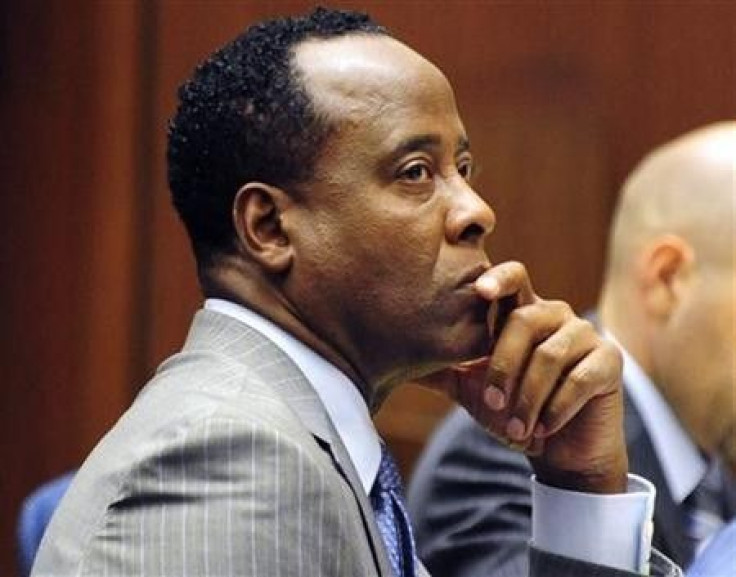Jackson Dependent on Painkiller, Trial Expert Says

Michael Jackson was dependent on a painkiller that he received in large, regular shots, along with Botox treatments, in the months before his death, a Los Angeles court heard on Thursday.
But in the involuntary manslaughter trial of Dr. Conrad Murray, stemming from Jackson's 2009 overdose death, addiction specialist Dr. Robert Waldman could not say unequivocally whether he believed the singer was addicted to the painkiller.
Waldman was testifying as an expert witness for the defense as it neared wrapping up its case. The claim by Murray's attorneys that the Thriller singer was addicted to the painkiller Demerol and that he engaged in doctor shopping is a central part of the defense strategy.
Murray has admitted to giving Jackson nearly daily doses of the powerful anesthetic propofol as a sleep aid at the singer's Los Angeles mansion, and medical examiners found that was the chief cause of his June 25, 2009, death.
But Murray's attorneys argue that the physician was unaware the singer was getting shots of Demerol from a Beverly Hills dermatologist, and that it hampered Murray's efforts to get him to sleep.
Waldman said side-effects of Demerol withdrawal included anxiety and insomnia.
According to medical records presented on Thursday, Jackson received 900 milligrams of Demerol over three days in May 2009, from dermatologist Dr. Arnold Klein.
Klein's records show he also gave Jackson Botox and Restylane for wrinkles and excess perspiration for several months in 2009. Waldman described the Demerol shots as stiff doses that were not needed with skin treatment injections.
I believe there is evidence that he was dependent on Demerol, Waldman said of Jackson, adding the pop star was possibly addicted to the painkiller.
LAST WITNESS
But during an aggressive cross-examination by prosecutors, Waldman could not say for certain that Jackson was addicted to the drug. He also acknowledged that he was not officially certified as an addiction specialist.
Dependence is characterized by a physical need for a drug, while addiction is more serious because it also involves a person continuing with destructive behavior and use of a substance, despite bad consequences, Waldman said.
Dr. Paul White, a leading expert on propofol who is expected to be the defense's last witness, undercut prosecutors' attempts on Thursday to show Murray acted dangerously by combining sedatives with propofol in his treatment of Jackson.
In anesthesiology, it's what we do every day, White told the jury. We're polypharmacists. We combine drugs to achieve better effect, with less medication.
White also said it seemed unusual that Jackson would have died from the relatively small dose of 25 milligrams of propofol that Murray told police he injected into the pop star hours before he stopped breathing.
Attorneys for Murray, whose specialty is cardiology, claimed in opening arguments last month that Jackson caused his own death by giving himself an extra dose of propofol without Murray's knowledge. But the defense has yet to address that point as it lays out its case in detail.
The doctor, who has pleaded not guilty, faces up to four years in prison if convicted.
© Copyright Thomson Reuters 2024. All rights reserved.











